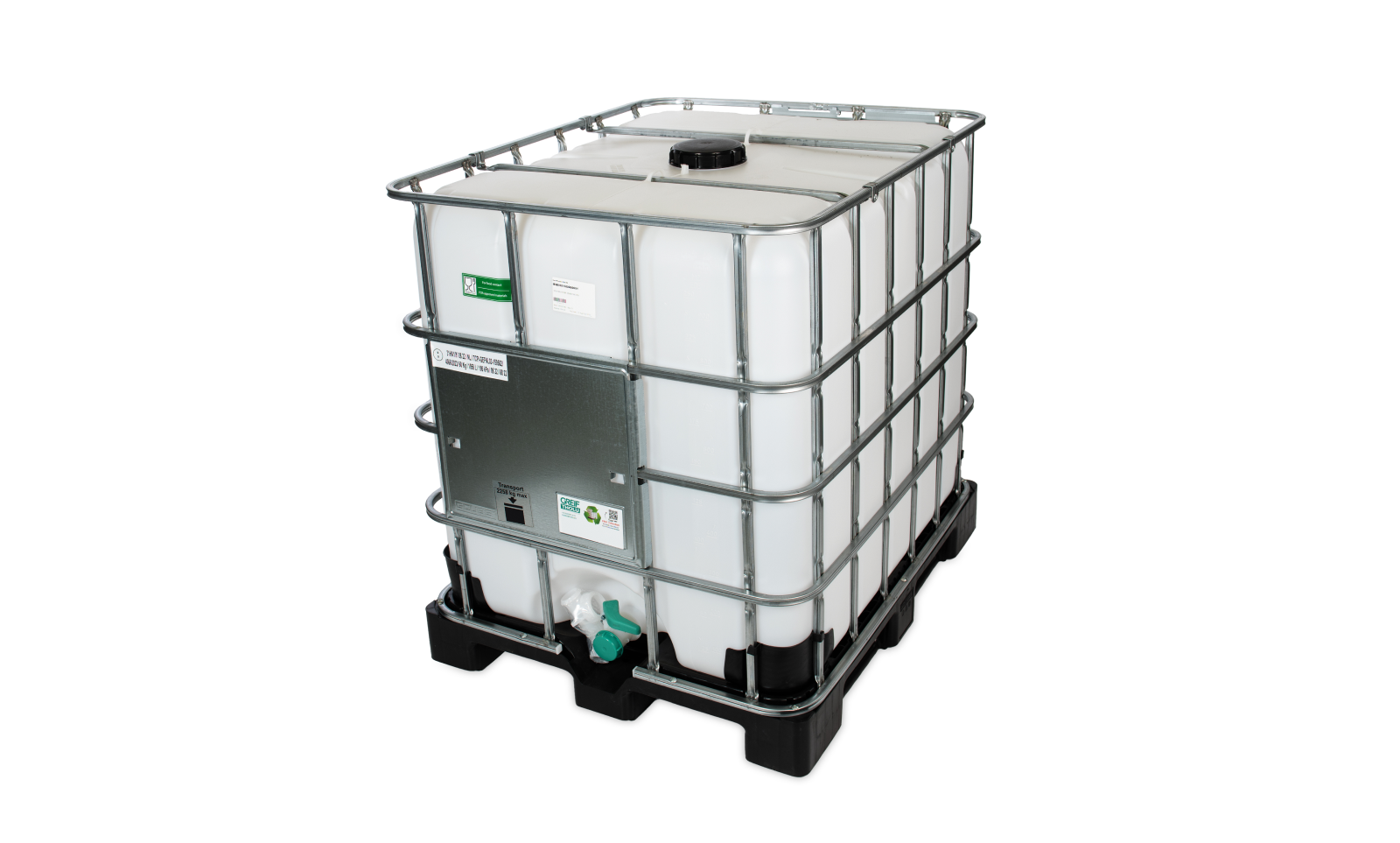Your cart is currently empty!
Recycling of IBC containers
By
.

Used IBCs are always recyclable. There are two possible processes for recycling IBCs:
- Reconditioning = cleaning the IBC
- Rebottling = providing the IBC with a new inner bag
A reconditioned IBC is not food-grade. However, this is often possible with a rebottled IBC. Both options do allow UN certification for the transport of dangerous goods.
Another ecological alternative is an IBC made with PCR or Post-Consumer-Recycled material. In this case, the HDPE bag is made from recycled material.
Reconditioning IBC
Reconditioning consists of six steps.
- Emptying the residue.
All residues are removed from the IBC and taken to a processor or treatment plant.
- Cleaning the outside
All labels, adhesives, contamination, etc. along the outside are removed under high pressure.
- Cleaning the inside
Several nozzles clean the inside of the IBC under high pressure.
- Rinsing and drying
After cleaning, the IBC is again rinsed and dried mechanically and manually.
- Pressure test
A pressure test is performed on each reconditioned IBC. This will guarantee a leak-tight IBC. The result of this pressure test is labelled on the IBC.
- Quality check
The final step is a quality check, sealing of the valve and any minor repairs. The IBC can now be used again.
Rebottled IBC
A rebottled IBC is a combination of new and used. The HDPE inner bag is new but the cage and pallet are used and cleaned.
The used inner bag is removed and processed into PCR material. This material is used for the pallets of new IBCs. The cage and pallet are cleaned and fitted with a new HDPE inner bag.
This allows it, not always, to be used for food products.
IBC with partial PCR material
This type of IBC container made of PCR material offers users a good way to reduce plastic consumption and limit CO2 emissions. The inner layer of the inner bag consists of 100% virgin polyethylene and the outer layers are made of PCR material. As a result, your product only comes into contact with the virgin material but the IBC still has a large percentage of recycled material.

